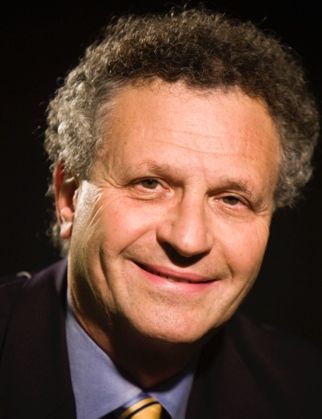Stuart Lipton,
Professor and Scientific Director,
Sanford Bunham Center for Neuroscience and Aging Research
Neurologist/neuroscientist Stuart Lipton, MD, PhD is a renowned expert in dementia, running a large basic-science laboratory and an active clinical neurology practice at UC San Diego. Educated at three Ivy League universities (Cornell, University of Pennsylvania, Harvard), Dr. Lipton completed scientific training as a postdoctoral fellow with Torsten Wiesel when Wiesel won the Nobel Prize. Dr. Lipton then spent 25 years on the faculty at Harvard before moving to La Jolla 14 years ago as founding director of a new neuroscience center. He is best known for discovering the mechanism of action and contributing to the clinical development of the latest FDA-approved treatment for Alzheimer’s disease (memantine/Namenda®, an uncompetitive antagonist at the NMDA receptor). Lipton and collaborator Jonathan Stamler discovered the chemical reaction termed S-nitrosylation as a ubiquitous redox-regulator of protein function, and have recently combined memantine with S-nitrosylation technology to produce a new drug, NitroMemantine, that displays disease-modifying activity in animal models of Alzheimer’s disease. Lipton’s group also discovered the NR3 family of modulatory NMDA receptor subunits, characterized the molecular pathways for protecting neurons with Erythropoietin, and discovered the transcription factor MEF2C. Recently, his group showed MEF2C is regulated by S-nitrosylation and serves as a master swtich for neurogenesis from human neural stem cells. Dysregulaed MEF2C is involved in the pathogenesis of Autism-Spectrum Disorders, Vascular dementia, Parkinson’s and Alzheimer’s diseases. Lipton is a recipient of the Ernst Jung Prize in Medicine, is an elected a fellow of the AAAS, and a recent awardee of the Alzheimer’s Disease Association.
|

|
|

 Add to Calendar ▼2011-09-28 11:15:002011-09-28 12:15:00Europe/LondonA Success in Drug Development by Academia: Uncompetitive/Fast Off-Rate (UFO) Drug Therapy for Neurodegenerative DisordersIon Channel Targets in San FranciscoSan FranciscoSELECTBIOenquiries@selectbiosciences.com
Add to Calendar ▼2011-09-28 11:15:002011-09-28 12:15:00Europe/LondonA Success in Drug Development by Academia: Uncompetitive/Fast Off-Rate (UFO) Drug Therapy for Neurodegenerative DisordersIon Channel Targets in San FranciscoSan FranciscoSELECTBIOenquiries@selectbiosciences.com Add to Calendar ▼2011-09-27 00:00:002011-09-28 00:00:00Europe/LondonIon Channel TargetsIon Channel Targets in San FranciscoSan FranciscoSELECTBIOenquiries@selectbiosciences.com
Add to Calendar ▼2011-09-27 00:00:002011-09-28 00:00:00Europe/LondonIon Channel TargetsIon Channel Targets in San FranciscoSan FranciscoSELECTBIOenquiries@selectbiosciences.com